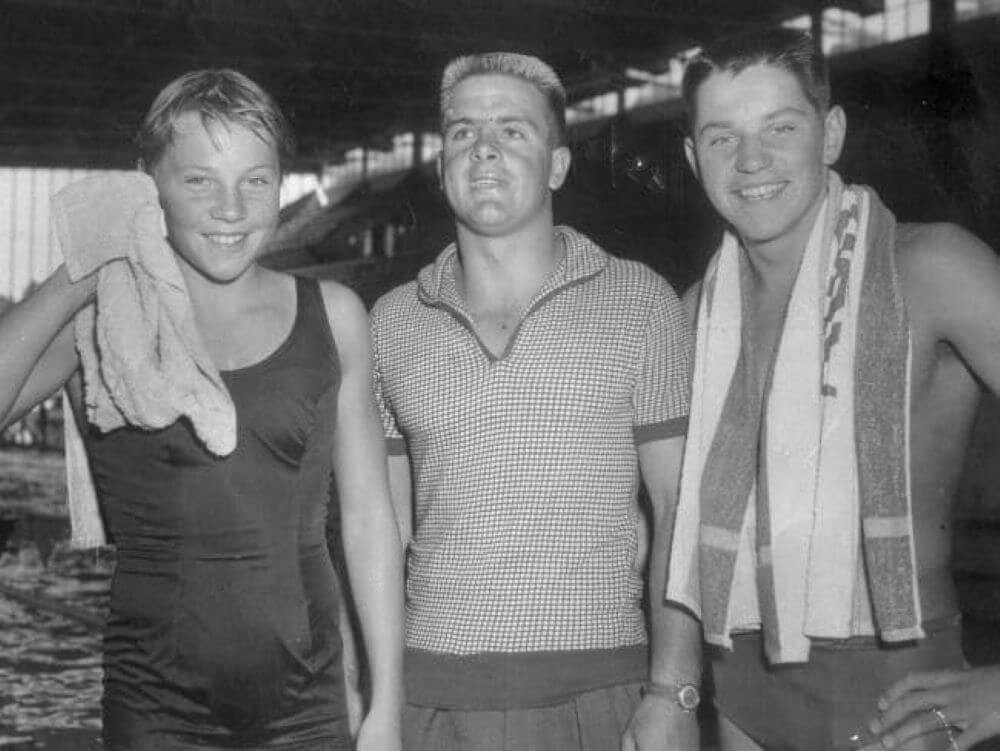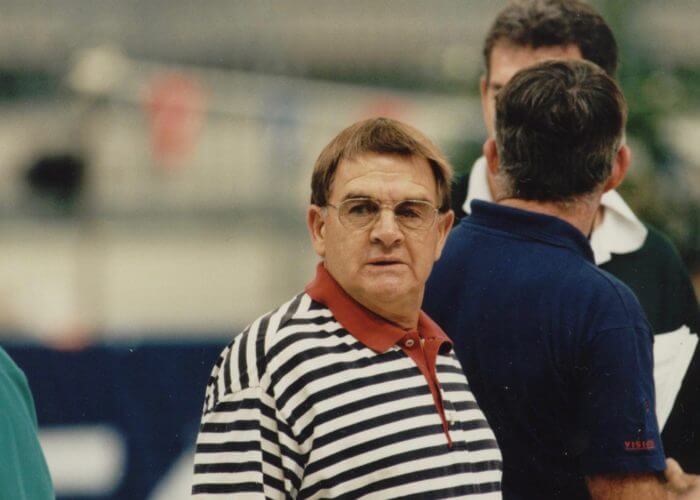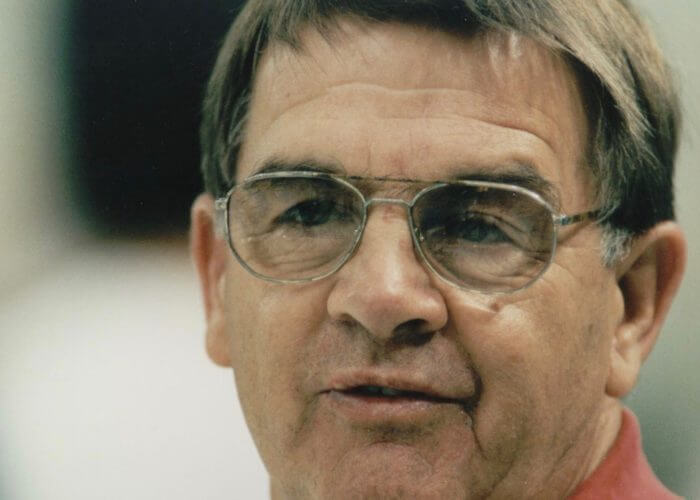Passages: Australia’s Don Talbot, a Giant in Coaching, Dies at 87

Passages: Australia’s Don Talbot, a Giant in Coaching, Dies at 87
The swimming world has lost a legend from its coaching ranks, as Australia’s Don Talbot died on Tuesday at the age of 87. Talbot, a 1979 inductee into the International Swimming Hall of Fame, is regarded as one of the greatest coaching minds in history, having guided his homeland to significant success while also molding some of the top names in the sport. Talbot was known as a taskmaster, but his success also warranted tremendous respect and appreciation for his coaching skills.
Talbot made his name known through the work he did with John and Ilsa Konrads, freestyle aces for Australia in the 1950s and 1960s. With Talbot guiding their careers, the Konrads siblings each set world records in the 400, 800 and 1500 freestyle, with John adding a global standard in the 200 freestyle and three medals at the 1960 Olympics in Rome. At the same time, he was developing Kevin Berry, who made his first Olympic squad as a 14-year-old in 1960 and would win gold in the 200 butterfly in 1964.
In 1989, Talbot was put in charge of the Australian National Team, and while his firm ways initially triggered a revolt among some athletes, Talbot withstood the storm and remained in his role for 12 years. At the time he took charge, Australia was coming off a poor showing at the 1988 Olympic Games, but Talbot turned the tide for the Aussies, who excelled on home soil at the 2000 Olympics in Sydney and at the 2001 World Championships in Fukuoka, where Australia bettered the United States in the gold-medal count.

Don Talbot in 1996. Photo Courtesy: Darrin Braybrook, Sport the Library / Swimming World Archive
Talbot always believed Australia should rank among the premier nations in the world, and there was no excuse for anything less.
“We want to build the component of team support that the Americans have, which others criticize but secretly envy,” he said. “We’re an island nation of 18 million, 95 percent (who live) within 10 minutes of the sea. We should have the best swimmers.”
Thanks to the success he had with the Konrads and Berry, Talbot was named the head coach of the Australian men’s team at the 1964 Games and held that role at the next two Olympiads. During that stretch, Talbot led Ian O’Brien, Bob Windle, Beverley Whitfield and Gail Neall to Olympic gold medals. However, a lack of support from Australian Swimming led to Talbot taking more lucrative jobs elsewhere.
He first left his homeland for Canada, where he served a stint as that country’s National Team coach and followed by taking the head job at the Nashville Aquatic Club in the United States, where he coached future hall of famer Tracy Caulkins.
A role at the Australian Institute for Sport brought him home in 1980, but Talbot left again for Canada a few years later. During his second stop as Canada’s National Team Coach, he prepared the nation to produce some of its best Olympic performances in 1984 and 1988, although he was let go from his position just before the 1988 Games. Between 1984 and 1988, Canada collected 12 medals, including four gold.

Photo Courtesy: Darrin Braybrook Sport the Library / Swimming World Archive
Based on his track record and Australia’s need to escape its struggles, Talbot was given the chance to lead the Land of Oz back to elite status. Initially, his hard-nosed and demanding tactics were a rude awakening to members of the National Team. Even political figures got involved in the rift between Talbot and the Aussie athletes, and Talbot was referred to by one media outlet as a tyrant in the form of Ming the Merciless, a character from the science fiction television show, Flash Gordon.
Eventually, Talbot’s grip took hold and the clamor for his removal died down. Why? The answer is simple: Australia started to produce results reminiscent of its glory days, when the likes of Dawn Fraser and Murray Rose stood atop the sport. By the 1992 Olympics, Australia was up to nine medals, with that number moving to 12 at the 1996 Games. More, stars were starting to surface, such as Kieren Perkins, Susie O’Neill and Petria Thomas.
At the 2000 Olympics, Australia was up to 18 medals, second to the United States, and Ian Thorpe and Grant Hackett had become superstars. At the 2001 World Championships, Talbot realized his greatest achievement when Australia won the most gold medals with 13, ahead of the United States’ nine. Instead of remaining at the helm, Talbot resigned in 2001.
Three years later, Swimming Canada came calling and Talbot once again led the national team after a disappointing showing at the 2004 Games. Although that position didn’t last long, as a year later he joined British Swimming as a consultant and would work with a select group of coaches to ensure their skills and experience exceeded those of their rivals at the Beijing Olympics in 2008
During his career, Talbot was an outspoken critic of performance-enhancing drug use and was among the most vocal opponents of the sudden rise of China in the 1990s.




Prayers for his family, friends, loved ones and former swimmers.
Graeme McGufficke & Liz Dillmann, did either of you swim for him?
One of my first coaching books was by him.
A great coach..R.I P. ?
Great Man and great Coach!
They kind of gloss over it but his first stint in Canada produced some record setting results. A couple of WR holders in the men’s side and our women were second only to the drugged up East Germans.
Indeed great man and Coach
A product of the Wagga Wagga Teachers College. A fine man who always gave his best shot. Condolences to his family.
He coached a few of my friends and worked with my coach, David Fry, during his time in Thunder Bay, Canada. His reputation of being tough preceded him. In ’84 when he took me as a member of the Canadian team to Australia and New Zealand, we were terrified of him bit he was fair and we swam amazingly. His impact was indelible.
A very sad day.
RIP Don, you will be missed by many. ?
One of the legends of the sport for sure!
A great mentor,coach & friend.RIP Clocky
A wonderful tuff coach. I privilege to be coached by him. RIP
Great Coach – Mentor – Will be missed by many.
Lead by example, hard work – commitment
Rest in peace. Bazil